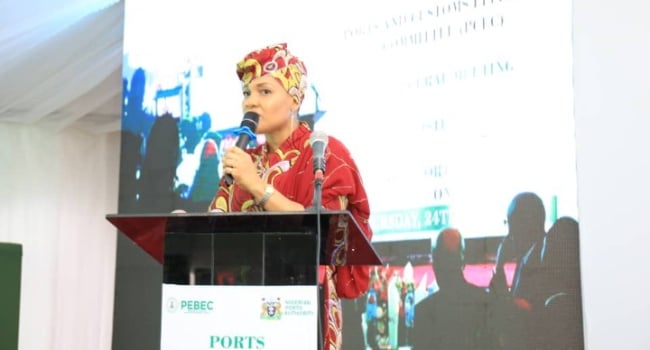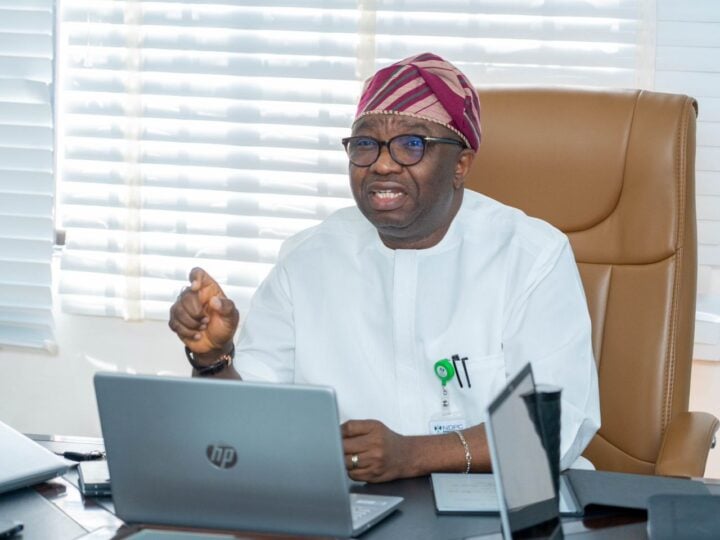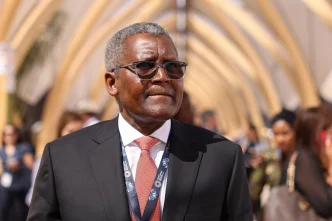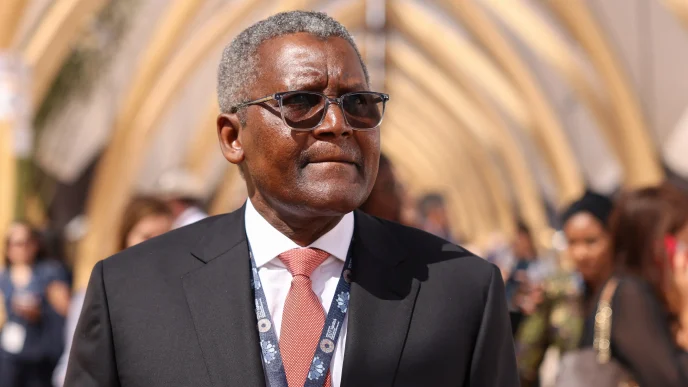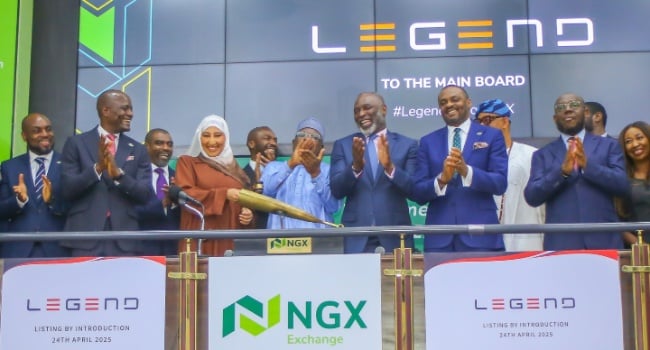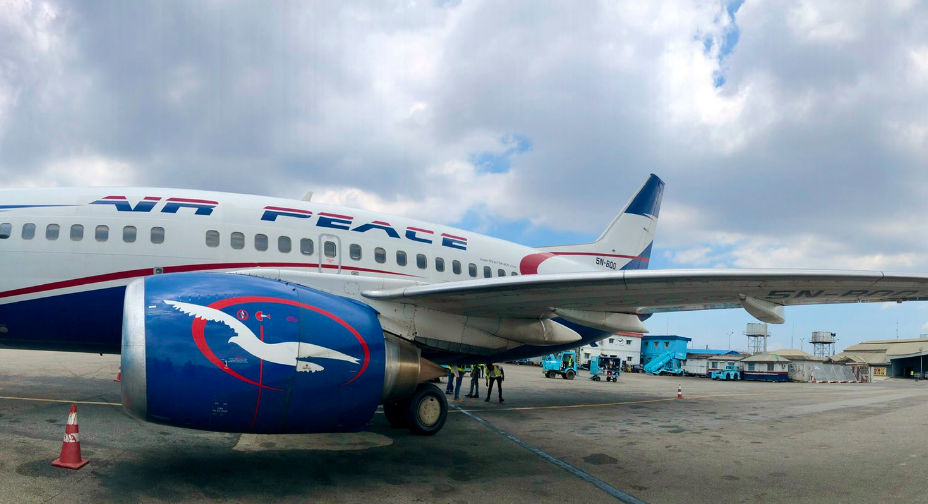The Presidential Enabling Business Environment Council (PEBEC) and the Nigerian Ports Authority (NPA) have inaugurated the ports and customs efficiency committee (PCEC) to improve efficiency and ease of doing business at Nigeria’s seaports.
The committee was launched on Thursday in Lagos, with a mandate to eliminate delays, reduce paperwork and address long-standing operational bottlenecks in port services.
Zahrah Audu, director-general (DG) of PEBEC, said the initiative is aimed at cutting cargo dwell time, speeding up vessel turnaround, and unlocking economic opportunities.
“By improving efficiencies in our ports, we can drastically reduce the average cargo dwell time and turnover time for customers,” she said.
Advertisement
“It will also eliminate duplication of documentation and manual processes.
“This is not just another one of our reforms, but this is about resilience, it’s about unlocking potential opportunities, and enhancing Nigeria’s economy.
“This is not just a committee made up of government force for a difference, this also has a lot of private sector stakeholders.
Advertisement
“It is a call to action for terminal operators to improve infrastructure and for shipping companies to increase efficiency so as to reduce delays, for freight forwarders to uphold compliance, and for regulators to reduce bureaucratic bottlenecks.
“It is a call for shared ownership of our shared problem and a commitment to deliver a shared solution.”
Speaking on the rationale behind the committee, Audu said it was set up to move beyond identifying known challenges to delivering long-overdue solutions.
“Nigeria loses so much daily due to inefficiencies at our ports. These aren’t just statistics — they are missed jobs, undelivered goods, unrealised investments, and delayed economic growth,” she said.
Advertisement
According to her, PCEC was created to change this narrative by ensuring that long-standing reforms move from paper to practice.
“At PEBEC, our mandate has always been to remove bureaucratic bottlenecks that make doing business in Nigeria difficult — especially at our ports,” she said.
“Since 2016, we’ve implemented over 200 reforms in partnership with MDAs and the private sector.
“But reform is not just about policies. It’s about outcomes. That’s why this committee matters — it’s not an observer group.
Advertisement
“It’s a high-impact team focused on sustainable improvements, working side by side with Customs, NPA, shipping lines, freight forwarders, and manufacturers.”
‘NIGERIA’S PORT INFRASTRUCTURE IS OUTDATED’
Advertisement
Abubakar Dantsoho, managing director of NPA, said infrastructure at the country’s ports — especially Apapa and Tin Can Island — was outdated and in urgent need of rehabilitation.
“Tin Can was constructed about 48 years ago, Apapa almost 100 years ago—yet no major rehabilitation has taken place all these years,” he said.
Advertisement
He said the recent approval for the reconstruction of both ports would improve berth depth and cargo handling capacity.
Dantsoho added that NPA is working with the International Maritime Organisation (IMO) to deploy the port community system (PCS), which will serve as the backbone of the national single window.
Advertisement
“The PCS will reduce human interface, cut costs, and improve transparency,” he said.
“But NPA cannot do it alone. Efficiency must cut across all players in the port ecosystem.”
The PCEC is expected to meet regularly and focus on practical reforms to make Nigeria’s ports more competitive.

